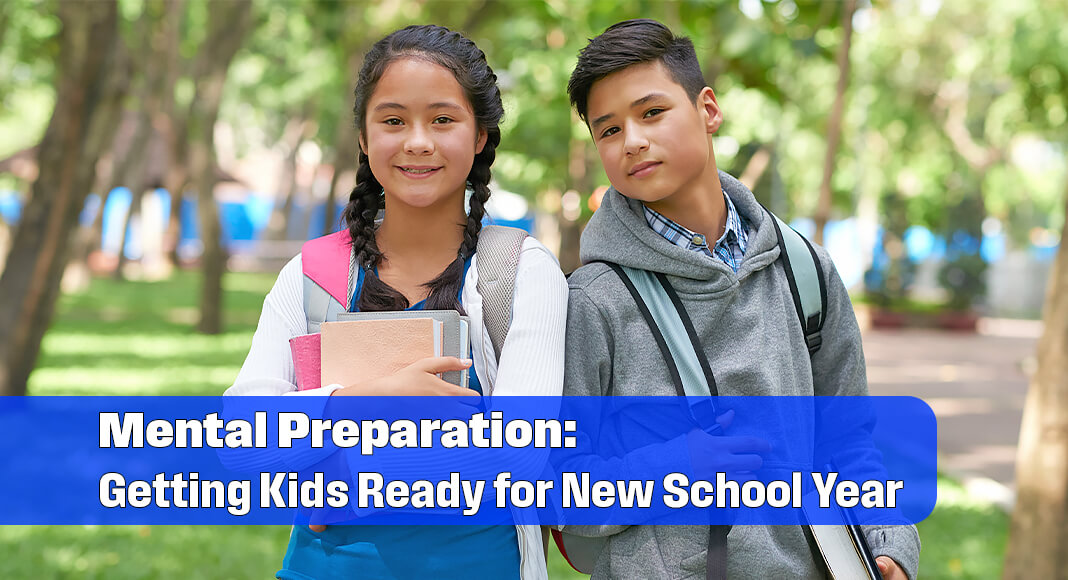
Mega Doctor News
For most children, the start of a new academic year is exciting for several reasons, including the opportunity to learn new things, reunite with friends and engage in extracurricular activities,
But for some kids, especially those going to school for the first time or attending classes at a new campus, it can lead to anxiety and stress.
In fact, about 26% of parents report anxiety as the top emotion their child experienced during the last school year, according to a survey by RethinkFirst, with 43% indicating their children experienced high or extreme stress.
“Stress and anxiety about the new school year can stem from a number of factors, including academic pressure, social concerns and adjusting to a new environment,” says Leticia Sosa, MSSW, LCSW, LCDC-I., KAP, CLYL, EMDR- Therapist, Director of Outpatient Services, South Texas Health System Behavioral. “The fear of the unknown can also contribute to anxiety while past negative experiences like bullying or academic struggles can further exacerbate children’s fears.”
In children, stress and anxiety can manifest in a multitude of ways, including physical symptoms like stomachaches and headaches, sleep disturbances, changes in appetite, irritability and mood swings, social withdrawal and difficulty concentrating.
“It’s imperative to address anxiety and stress in children because early intervention can prevent long-term negative impacts on their mental and physical health, academic performance and social development,” says Sosa. “Left untreated, anxiety can manifest, leading to mental health issues like depression, substance abuse and even suicidal thoughts. So, addressing any challenges early allows kids to develop coping mechanisms, build resilience and improve their overall well-being.”
To combat back-to-school stress and anxiety in their children, South Texas Health System Behavioral encourages parents to implement the following strategies:
Start a Routine Early: Begin shifting sleep and meal schedules at least a week or two before their first day of school. A consistent routine can help regulate children’s nervous systems and reduce anxiety about the unknown.
Talk About Their Feelings Openly: It’s important to create space for your child to express any back-to-school jitters or concerns. Normalize their feelings and let them know it’s okay to feel nervous or unsure.
Watch Out for Red Flags: Keep an eye out for signs of stress, such as sleep disturbances, irritability, withdrawal or stomachaches. These may be subtle indicators that your child is having a tough time adjusting.
Be the Model of Calmness and Confidence: Kids often reflect our energy. Staying calm and positive (even if you’re a little stressed!) can help children feel secure and reassured.
Teach Them How to Relax: Deep breathing techniques like smelling a flower or blowing out a candle can help calm them down when feeling stressed, while introducing mindfulness exercises or meditation can be used to promote relaxation and focus.
Check In, Not Check Out: Stay connected during the first few weeks of school with simple daily check-ins. Askingquestions like, “What was the best and hardest part of your day?” can go a long way.
Seek Professional Help When Needed: Be aware of the signs of excessive anxiety, like withdrawal, irritability of physical complaints, and consult with a school counselor, therapist or mental health professional of those symptoms persist.
“If parents notice any distress signals signs, it’s important to seek professional help promptly to address any underlying issues and provide the necessary support for their child’s mental well-being,” says Sosa.
If you’re worried about your child’s mental health, South Texas Health System Behavioral can help. For a confidential assessment, call the facility’s hotline at 388-1300 or visit southtexashealthsystembehavioral.com. Licensed mental health professionals are available 24 hours a day, 7 days a week to assist you or a loved one.









